
“It’s so weird that Sergio hasn’t arrived,” said Sámara’s school teacher 42 years ago on the day of Sergio’s graduation. “He must be fishing,” said Vinicio, Sergio’s classmate and friend to this day.
“I was submerged in fishing and I forgot about the diploma,” Sergio Girón recalls with a joy that makes his eyes twinkle. “Someone shouted at me and I ran and took a quick bath. I had sardine scales on my hands, but I still went to school that way.”
‘Chejo,’ as a childhood neighbor called him, has spent his entire life in Sámara, a coastal district that depends on fishing and tourism. He has always had the sea a short 500 meters (1,640 feet) away from him. At age 12, however, he imagined himself being anything but a fisherman. He didn’t know that he was going to earn a living by holding his breath.
He’s thin and gawky and has wrinkles in his worn out, sunburned skin. He’s also very popular. Spending one morning with him is enough to realize as much. “Blessings,” a neighbor shouts from a bicycle as he sees him pass. At the beach, other fishermen stop him to show him what the catched in the sea.
He didn’t receive fishing classes. What he knows he learned by watching his father and brother over and over again. He used to go to the mangrove to fish and throw his line into the swamps as intuition would tell him to do, which is why he is certain that he “carries the art of fishing inside.”
He also knows that many others like him need to go out to sea in order to make a living. His life, afterall, is a reflection of what many other residents — his friends, the friends of his friends — in the area live off of.
He says that he worked in agriculture until age 17 and took classes taught by the National Learning Institute (INA in Spanish) in mechanics, ship building and coastal, celestial, analytical and satellite navigation.
With these classes, Chejo could have been a sailor, ship captain or machine operator like some of his friends ended up becoming. But he doesn’t remember what happened. He just knows that helping his family was more important, so he weeded around the neighborhood.
As time passed, he discovered that fishing could provide better results. “The money I made swinging the machete was about ¢750 ($1.20) per week,” he says in a more serious than usual tone. “Fishermen made up to ¢15,000 ($25) when fishing was good.”
So his friends told him, “Sergio, why don’t you start fishing? Look what we make.” He made ¢7,000 ($11.60) “a ton of money,” in his first week of fishing. That was 35 years ago, and he hasn’t left the sea since.
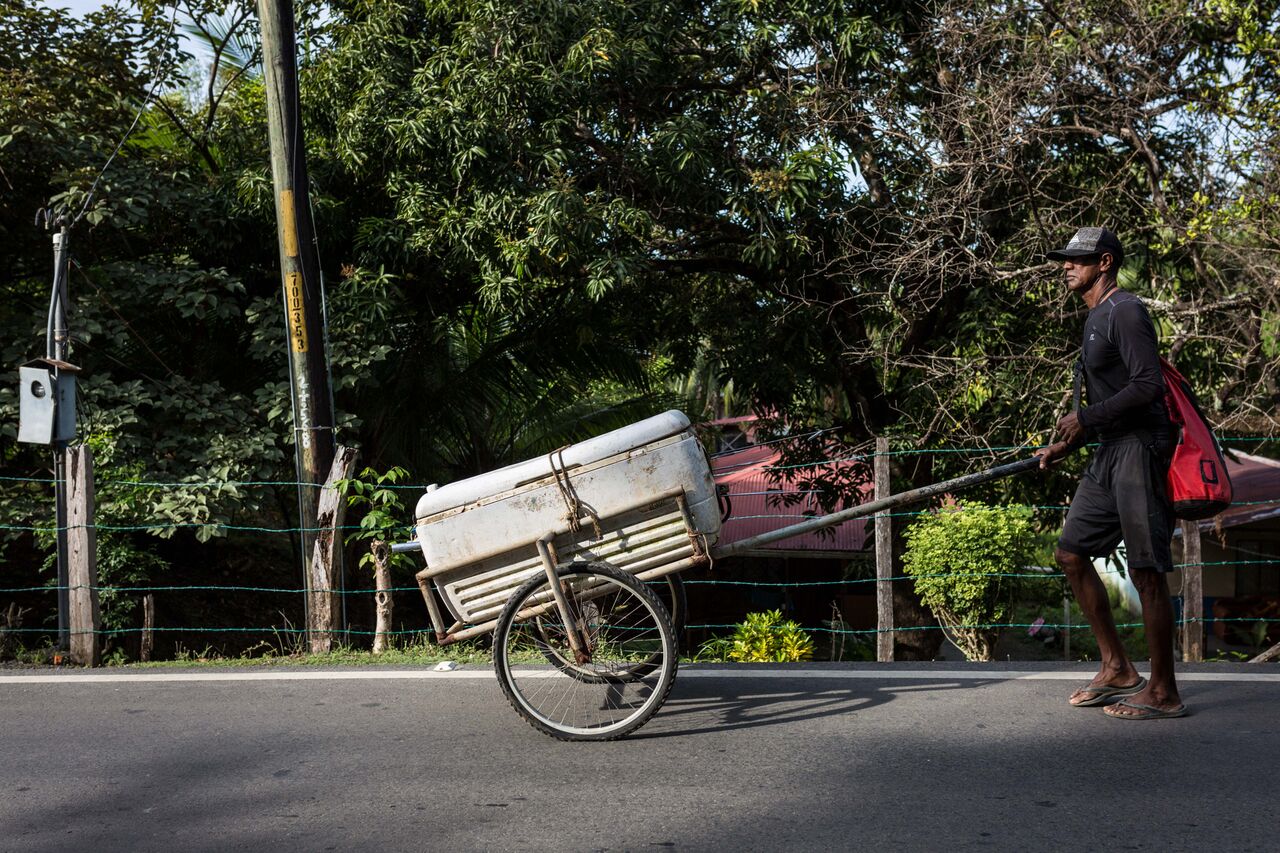
Chejo walks about 2,600 feet from his house in Samara to the beach to get on his boat and go fishing. He can´t miss his cooler and harpoons.
Diving is an Art
Chejo puts his hand over his heart, waits for his pulse to slow, and when it starts beating slower, he inhales, entrusts himself in God and starts to descend. At age 54, he can hold his breath for more than two minutes at 25 meters (82 feet) underwater. 30 seconds more than the average human being.
At his boat, just 200 meters from the shore, he takes fewer than 30 seconds to grab a lobster that doesn’t fit in his hand.
Bicycling all day, not drinking, and not smoking or staying up all night is the recipe for staying underwater for longer, he says.
In his beginnings as a fisherman, Chejo used a line, the most conventional method. But since age nine, when he was given fins and a crossbow as gifts, he got the idea to go diving. The day would come when he would perfect it.
The practice is called spearfishing. All you need are fins, a snorkeling mask and air. A lot of air. This type of fishing is regulated by the Costa Rican Fishing Institute (Incopesca).
Fishing this way allows fishermen like Chejo better access to species like lobster, for example, that are found among corals and are difficult to catch with nets.
Chejo thought he was a good diver until he met a Spanish man named Tony, who took second in the world diving championship. He learned that his heart was always accelerated and nervous, which would leave him without air. As soon as he would submerge, he needed to come up.
“We took the Spaniard diving and we went down 12 meters,” Sergio says of Tony. “I went down, touched the rock and came back up. I did that twice and the Spaniard was still down there. When we came up together, he told me, ‘That’s not how it’s done. Enjoy it, take your time, relax, take in enough air. Go down slowly.’”
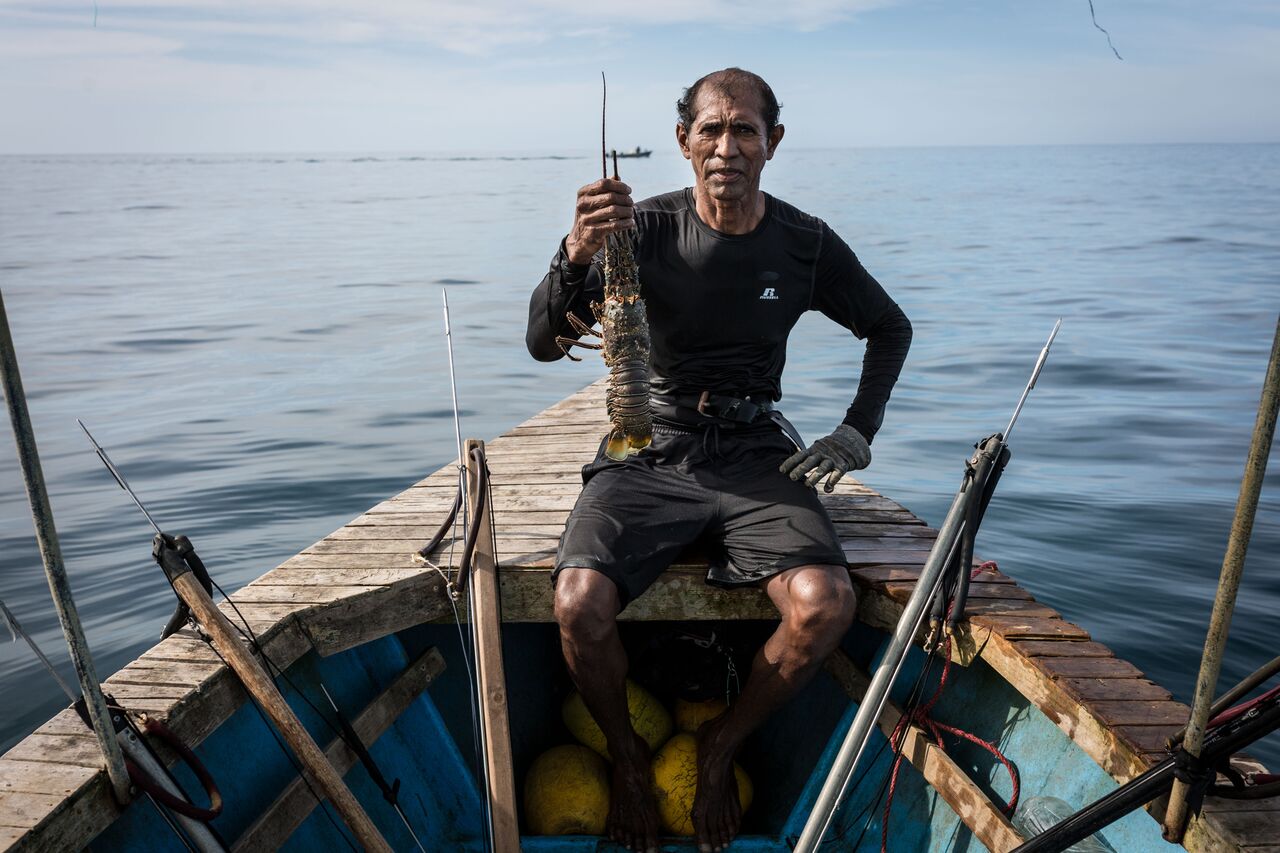
At age 54, he can hold his breath for more than two minutes at 25 meters (82 feet) underwater. 30 seconds more than the average human being.
A Tough Catch
Sitting down and talking with Chejo is like reading a storybook. The stories are so extraordinary that they sounds like fiction.
He alternates between stories and criticism. Chejo never gets tired of saying that fishing is difficult nowadays. Not only because there are fewer fish in the sea, according to him, but also because of all the regulations, rules that, for the poorest, have an impact.
On top of that, Chejo adds the impact of climate change. Long winters and cold fronts work against him. For example, in 2017 during Nate storm they could only work for two weeks in October and September because of bad weather. “That’s what we deal with in order to live and eat.”
But, curiously, it’s that uncertainty of not knowing what they may find in the sea that makes fishermen feel alive.
Chejo can’t imagine doing anything else. Fishing is his job and his favorite sport. He’s not sure if he will die being a fisherman but he knows one thing: he wants to be in the sea all day.


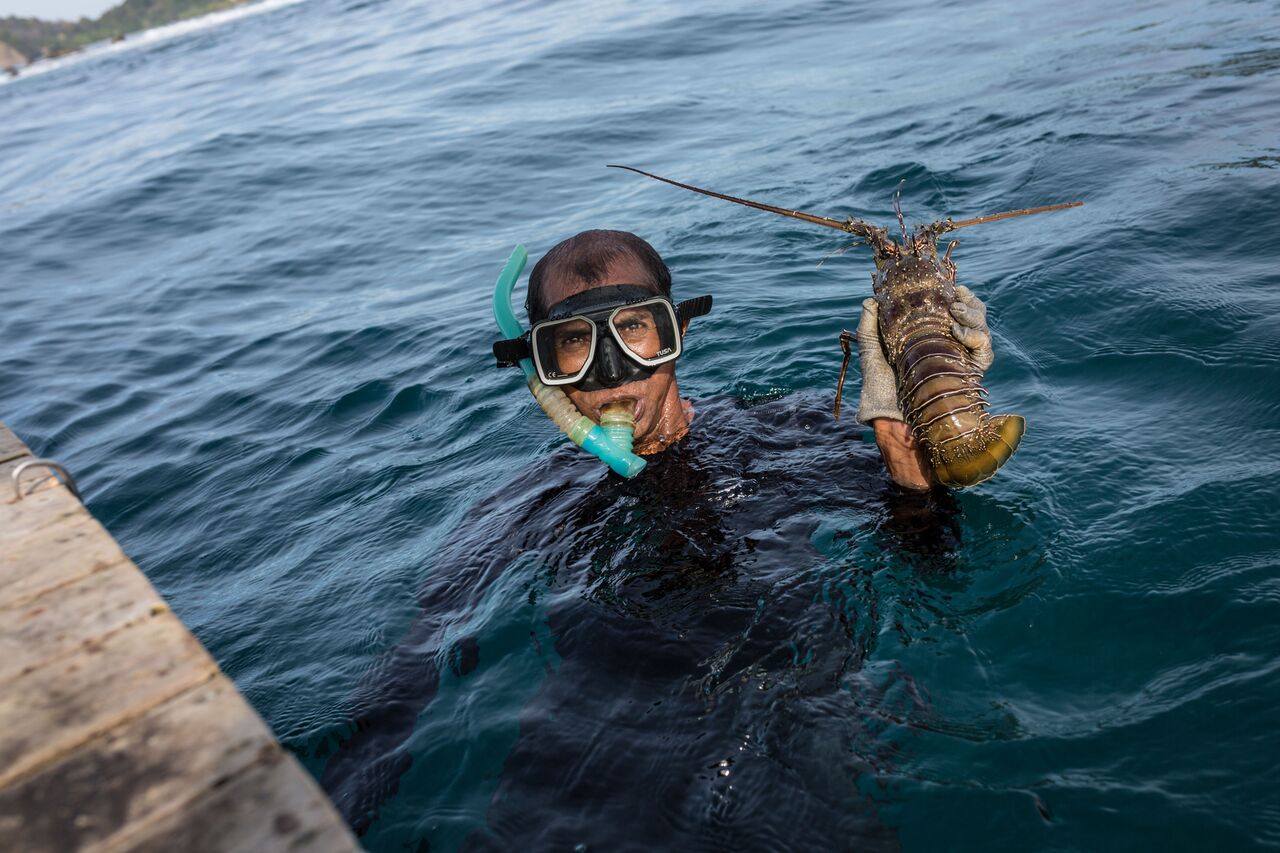
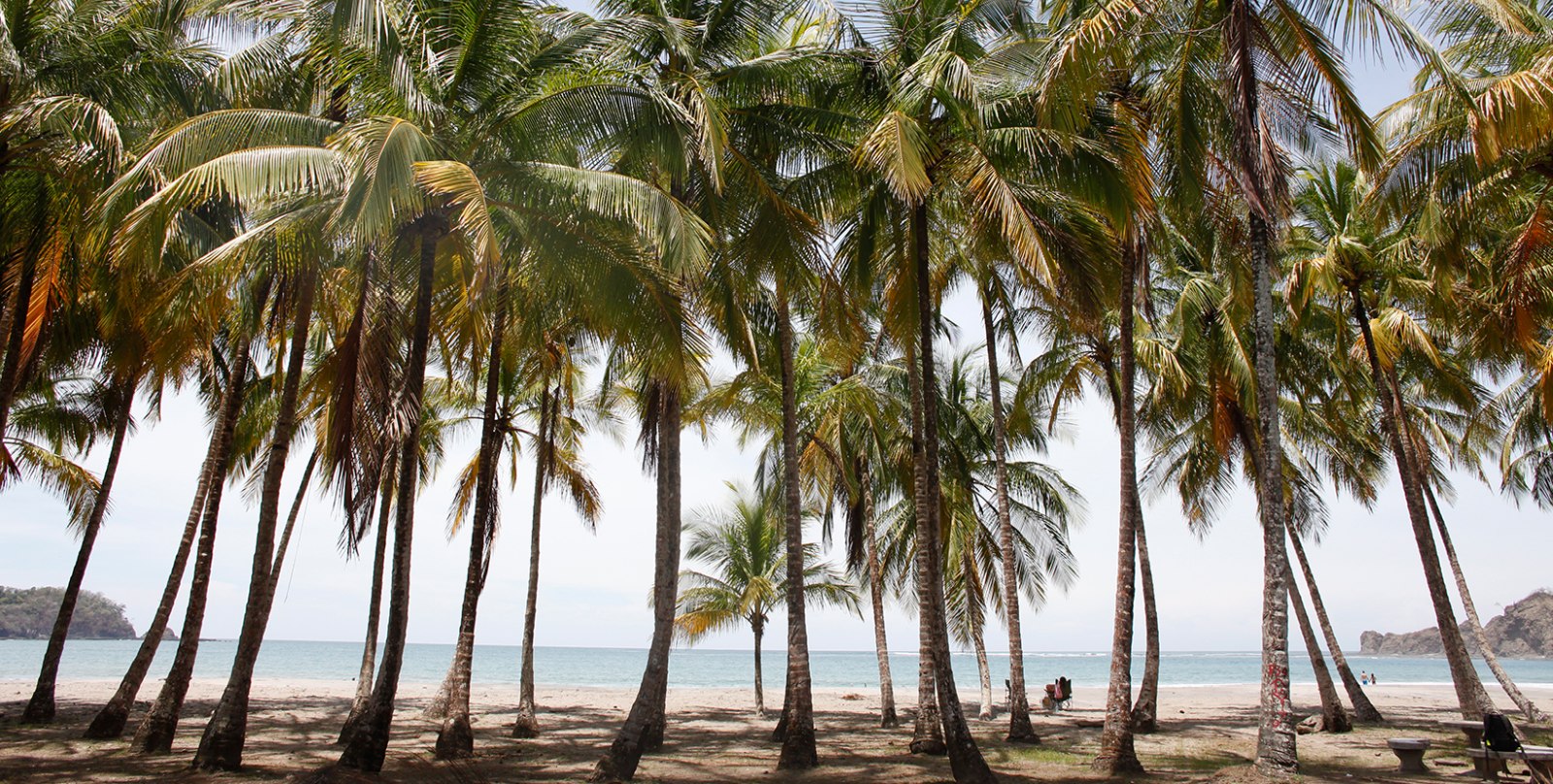
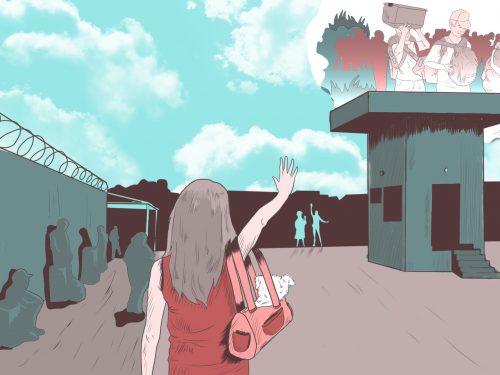
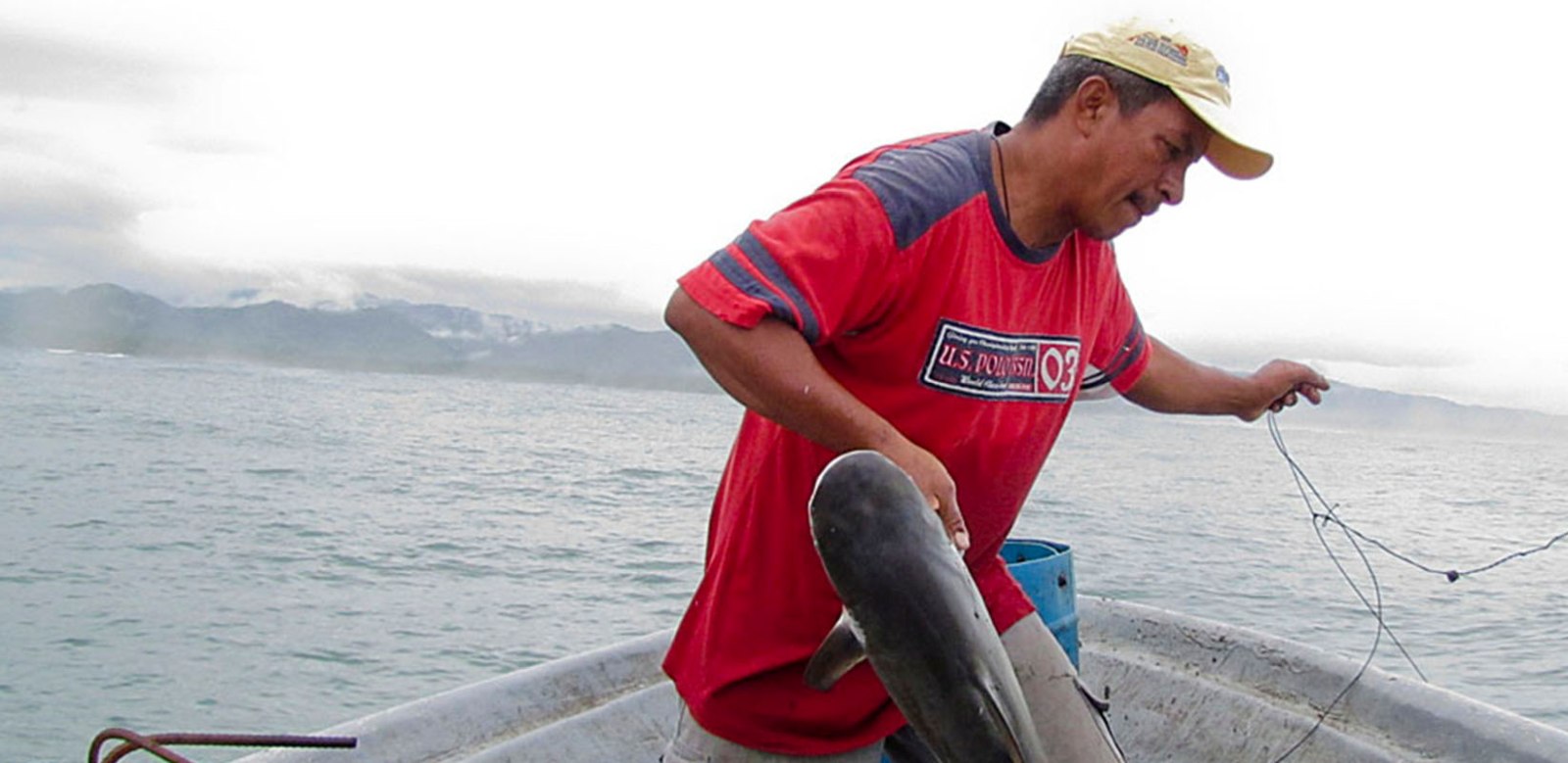

Comments